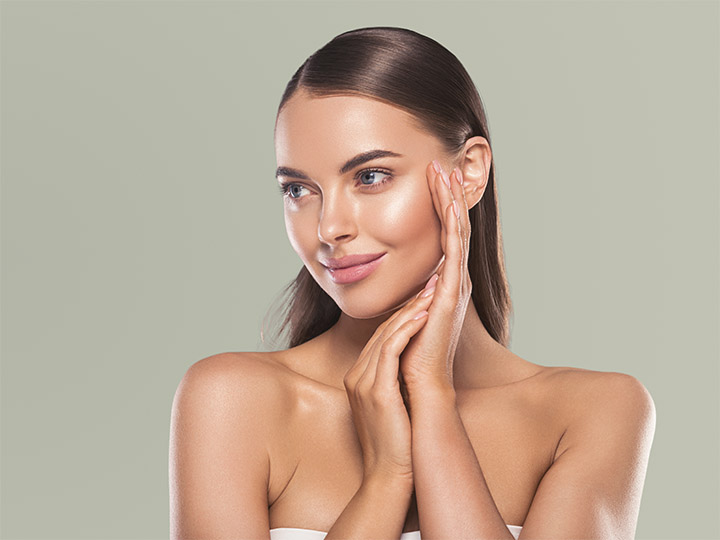Understanding Peptide Therapy and Its Role in Anti-Aging
Aging is a natural process, but modern wellness science is uncovering new ways to slow its visible and physical effects. One emerging approach is anti-aging peptide therapy, which uses specific peptides to promote youthful healing and regeneration in the body. Peptide therapy has gained attention for its potential to stimulate collagen production for firmer skin, boost energy levels, enhance sleep quality, and support lean muscle maintenance. In this article, we’ll explore what peptide therapy is, how it works, its benefits, and what to consider if you’re curious about this cutting-edge anti-aging treatment.

What Are Peptides?
Peptides are short chains of amino acids, essentially the building blocks of proteins. In the body, they act as messengers, triggering various biological processes. Certain peptides signal cells to repair tissue, regulate hormones, or reduce inflammation. Because they are smaller than full proteins, peptides can often easily enter cells and influence cellular activity. In peptide therapy, scientists and doctors harness these natural messengers by introducing specific peptides into the body to achieve desired effects. Peptide therapy usually involves peptide injections for aging purposes, delivering peptides directly into the bloodstream or under the skin. This method bypasses the digestive system and ensures the peptides reach their target tissues. By injecting peptides, doctors aim to mimic or amplify the body’s own signals that promote youthfulness. Peptide treatments can also come as nasal sprays, creams, or pills, but injectable forms tend to be the most effective for anti-aging goals.
Peptides for Skin Health: Collagen Production and Firmness
One of the most popular uses of peptide therapy is to improve skin appearance. Peptides for skin health are now featured in many cosmetic products and treatments because of their role in maintaining youthful skin structure. The connection between peptides and collagen production is key. Collagen is the protein that keeps skin firm, plump, and elastic, but our natural collagen levels decline with age. Specific peptides can signal the skin’s fibroblast cells to ramp up collagen and even elastin production. By boosting these structural proteins, peptides help tighten and strengthen aging skin.
Peptide-based treatments function like a therapy for skin tightening, fighting sagging and wrinkles at the source. For example, a copper-bound peptide called GHK-Cu has been found to stimulate new collagen and elastin synthesis in the skin, leading to firmer, smoother textures. With more collagen, skin can regain some of its elasticity and thickness, softening the look of fine lines. Some peptides even aid in repairing damaged skin cells and reducing inflammation, contributing to a more even tone and “glow.”
Collagen Peptides for Skin: Supplements and “Multi” Collagens
Beyond clinical peptide treatments, you may have heard about collagen peptide supplements. These are ingestible products containing collagen broken down into smaller peptide fragments. Many people take multi-collagen peptides with the hope of improving skin, hair, nails, and joints. The idea is that consuming these collagen peptides for skin provides the amino acid building blocks to support the body’s collagen production.
Key Peptide Therapy Benefits for Anti-Aging
Peptide therapy aims to tackle several aspects of aging, not just wrinkles. Users and physicians have observed a broad range of potential benefits from the treatment. Here are some of the notable peptide therapy benefits often reported:
- Youthful Skin Rejuvenation: One of the most celebrated effects of peptide therapy is its impact on skin health. As collagen production declines with age, the skin begins to lose its elasticity, resulting in sagging, dryness, and wrinkles. Peptides, particularly those that stimulate collagen and elastin synthesis, help counter these effects by signaling the body to regenerate and repair skin tissue. Over time, users often report firmer, smoother, and more hydrated skin, with a noticeable reduction in fine lines and age spots. The enhanced moisture retention improves the overall glow and suppleness of the skin, restoring a youthful complexion that looks revitalized from within. Also, certain peptides support faster cellular turnover and help protect against UV damage, further enhancing long-term skin resilience. For individuals seeking non-invasive alternatives to cosmetic procedures, peptide therapy offers a natural approach to rejuvenation that supports ongoing skin repair at the molecular level.
- Improved Body Composition: It also plays a powerful role in optimizing body composition. Specific peptides, like growth hormone-releasing peptides (GHRPs) and growth hormone secretagogues (GHSs), can stimulate the body’s natural production of growth hormone. This, in turn, helps increase lean muscle mass while simultaneously promoting fat metabolism. Many individuals undergoing peptide therapy experience improved muscle tone, reduced belly fat, and enhanced endurance during workouts. This dual action creates a leaner, more sculpted physique without the need for extreme diets or exercise regimens. Peptides may also help improve insulin sensitivity, stabilize energy levels, and support faster post-exercise recovery, allowing users to maintain consistent training intensity. As metabolism slows with age, these effects can make a significant difference in maintaining a healthy weight and active lifestyle.
- Enhanced Vitality: Aging often brings a gradual decline in stamina, mood, and cognitive sharpness, but peptide therapy may help reverse some of these changes. By supporting the body’s natural hormone balance and improving mitochondrial efficiency, peptides help boost energy production at the cellular level. This leads to a sustained sense of vitality, sharper mental focus, and a greater ability to handle stress.
- Faster Healing and Recovery: Another compelling advantage of peptide therapy is its ability to accelerate healing and recovery. Whether from intense exercise, injury, or surgery, the body’s natural repair mechanisms tend to slow down with age. Peptides such as BPC-157 and TB-500 have been shown to promote tissue regeneration, reduce inflammation, and enhance blood flow to damaged areas. This results in quicker recovery from strains, sprains, and microtears, as well as reduced soreness after physical activity.
Some of the best anti-aging peptides used in clinics include growth hormone secretagogues such as CJC-1295 or Ipamorelin. Together, these peptide-induced improvements can help an individual look and feel younger.
Peptide Therapy for Men and Its Unique Benefits
Aging affects both women and men, but there has been particular interest in peptide therapy for men as a way to counter midlife declines in strength and vitality. Men naturally experience a drop in anabolic hormones as they age, which can lead to fatigue, muscle loss, increased body fat, and lower libido. Peptide therapy is now being used by many men over 40 to help address these issues in a targeted way. Peptide treatments can yield significant improvements for me, including increased muscle mass and strength, reduced body fat, higher energy levels, and faster workout recovery
How does it work for males? Certain peptides stimulate the release of a man’s own growth hormone, which supports muscle building and fat metabolism. This can partially reverse the “dad bod” effect by promoting a leaner, more muscular physique. Other peptide formulations (such as PT-141 Bremelanotide) specifically aim to boost sexual function and libido, offering a possible remedy for age-related sexual declines without resorting to standard ED medications.

By optimizing these areas, muscle, metabolism, and sexual health, peptide therapy for men serves as a modern tool to maintain performance and wellness well into middle age and beyond. Men considering peptide therapy should work with a knowledgeable provider to tailor the treatment to their health goals, and to ensure it complements other therapies like testosterone replacement or lifestyle changes if needed.
Peptides in Anti-Aging Skincare Products vs. Injections
Walk down any skincare aisle and you’ll see “peptide” creams and serums claiming anti-wrinkle benefits. There is some scientific basis for these topical products: small peptides applied to the skin can signal surface cells and might slightly improve hydration or texture. However, it’s crucial to set realistic expectations. Topical anti-aging skincare products work only on the very upper layers of skin, whereas injectable peptide therapy works internally on deeper layers. Unlike peptide injections for aging, which deliver peptides throughout the body, most over-the-counter peptide creams cannot penetrate deeply enough into the skin to reach the dermis. The skin’s outer barrier blocks large molecules like most peptides, meaning a peptide cream may moisturize and plump the surface but won’t dramatically boost collagen in the deeper skin.
Because of this limitation, clinics often favor peptide injections or advanced delivery methods for real anti-aging effects. Injections ensure the peptide enters the bloodstream or targeted tissue intact, triggering systemic changes such as collagen formation or fat burning that a cream simply can’t match. That said, peptide-infused skincare can be a nice addition to a routine for surface-level improvements. Some dermatologists recommend using peptide creams alongside proven topicals like retinoids and sunscreen, as part of a comprehensive skin regimen. Just remember that anti-aging peptide injections administered by medical professionals will have a much more potent effect than a peptide face cream, which is why injections are the core of peptide therapy programs.
Safety and Side Effects
Peptide therapy is generally considered safe when used under medical supervision, but like any treatment, it comes with considerations. Many peptide formulations are analogues of substances your body produces naturally, so side effects tend to be mild for most people. Reported side effects include minor injection site reactions, temporary fatigue or headache, or slight water retention. These usually resolve on their own. However, misuse of peptides could potentially lead to imbalances. This underscores the importance of using peptides as directed by a qualified healthcare provider, who can monitor your response. Reputable clinics will source pharmaceutical-grade peptides and have physicians oversee their use. But outside a medical setting, one might encounter unregulated peptide products online that could be ineffective or contaminated. As with any emerging therapy, make sure you understand what peptide is being given, why it’s appropriate for you, and the track record of its safety. With proper oversight, peptide therapy can be performed safely, but one should always make informed decisions and, if uncertain, consider a second opinion.
Cost of Peptide Therapy and Treatment Plans
The cost of peptide therapy is an important factor to consider, as these advanced treatments can be a significant investment. Anti-aging peptide injections don’t come cheap. Depending on the specific peptides used and the duration of the program, treatments can cost roughly $200 to $700 per month on average. A simple peptide shot might be a couple of hundred dollars, whereas comprehensive programs combining multiple peptides over several months can run into the high hundreds or more. Typically, clinics recommend a series of injections or ongoing therapy for the best results, so costs add up over time. Because this is considered an elective wellness treatment, insurance rarely covers it. Patients should be prepared for out-of-pocket expenses and discuss the plan upfront with their provider to budget accordingly.
What drives the cost? Factors include the type of peptide, the dosage and frequency of injections, clinical monitoring and follow-up, and the region or clinic’s pricing. A peptide regimen for general anti-aging might involve daily injections at home with periodic doctor visits, whereas a high-touch program at a luxury clinic could involve frequent in-office treatments and lab work. Geographic location also matters. Major city centers or peptide therapy clinics with a boutique reputation may charge more than smaller wellness practices.
To maximize value, it’s wise to have a thorough consultation and get a personalized treatment plan. Reputable providers will tailor the peptides to your specific needs, often as part of a broader anti-aging strategy. For instance, at a cosmetic wellness center like 4Ever Young Anti-Aging Solutions, doctors create individualized anti-aging treatment plans that might combine peptide therapy with other proven interventions to achieve comprehensive results. A holistic approach ensures that peptide therapy isn’t used in isolation, but rather as one component of supporting your overall health and longevity.

Peptide therapy represents an exciting frontier in the anti-aging and cosmetic wellness arena. These small protein fragments can have outsized effects, from firming up skin to revitalizing energy levels. While not a magical fountain of youth, peptides offer a science-based way to nudge the body toward a more youthful state. Anyone considering peptide treatments should educate themselves, consult with qualified medical professionals, and weigh the potential benefits against costs and unknowns. When used responsibly, peptide therapy can be a valuable tool to look and feel younger, helping you tighten your skin, strengthen your body, and rejuvenate your vitality as you age. For now, it holds great promise for those seeking a proactive, cutting-edge strategy in their anti-aging journey.
Sources:
- Pickart, L. (2015). GHK peptide as a natural modulator of multiple cellular pathways in skin regeneration (PMC4508379). PMC. NihGHK Peptide as a Natural Modulator of Multiple Cellular Pathways in Skin Regeneration







